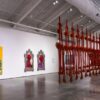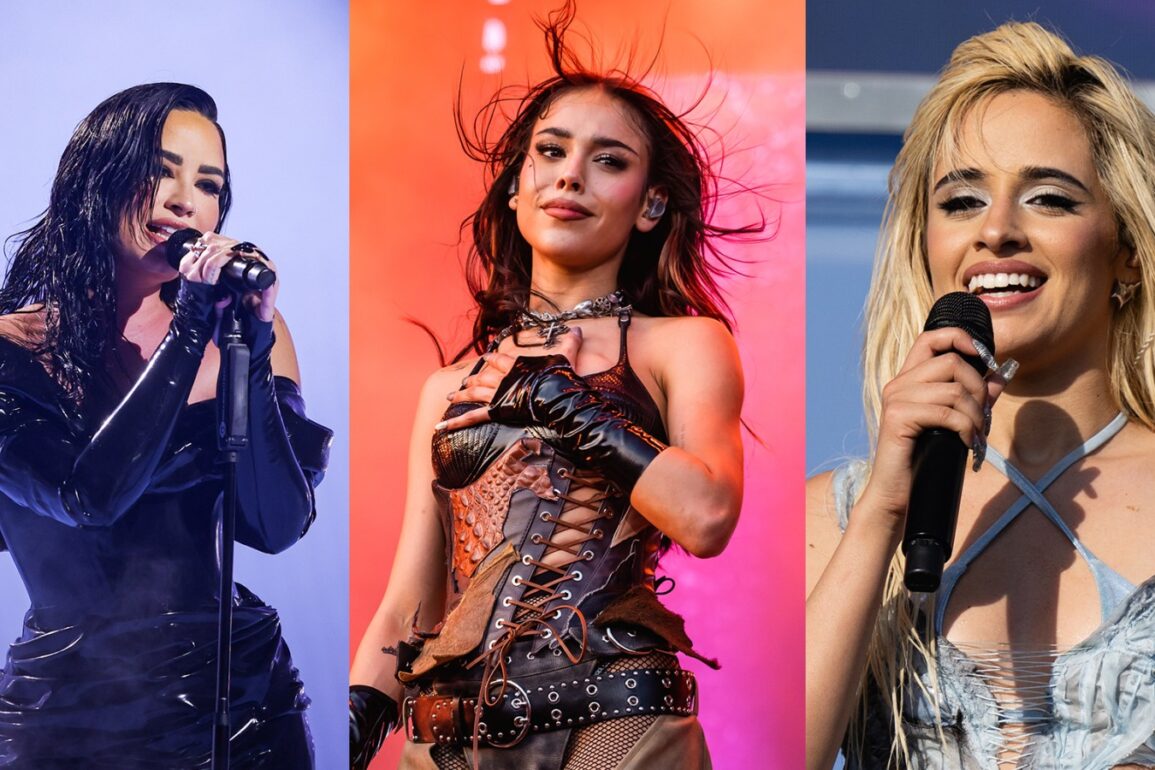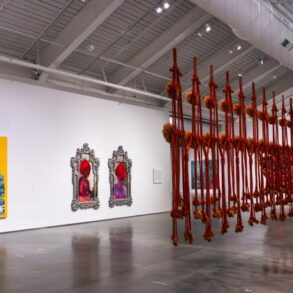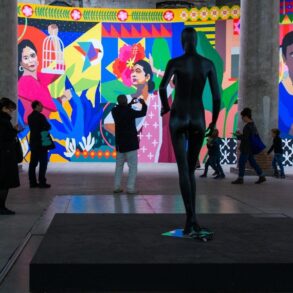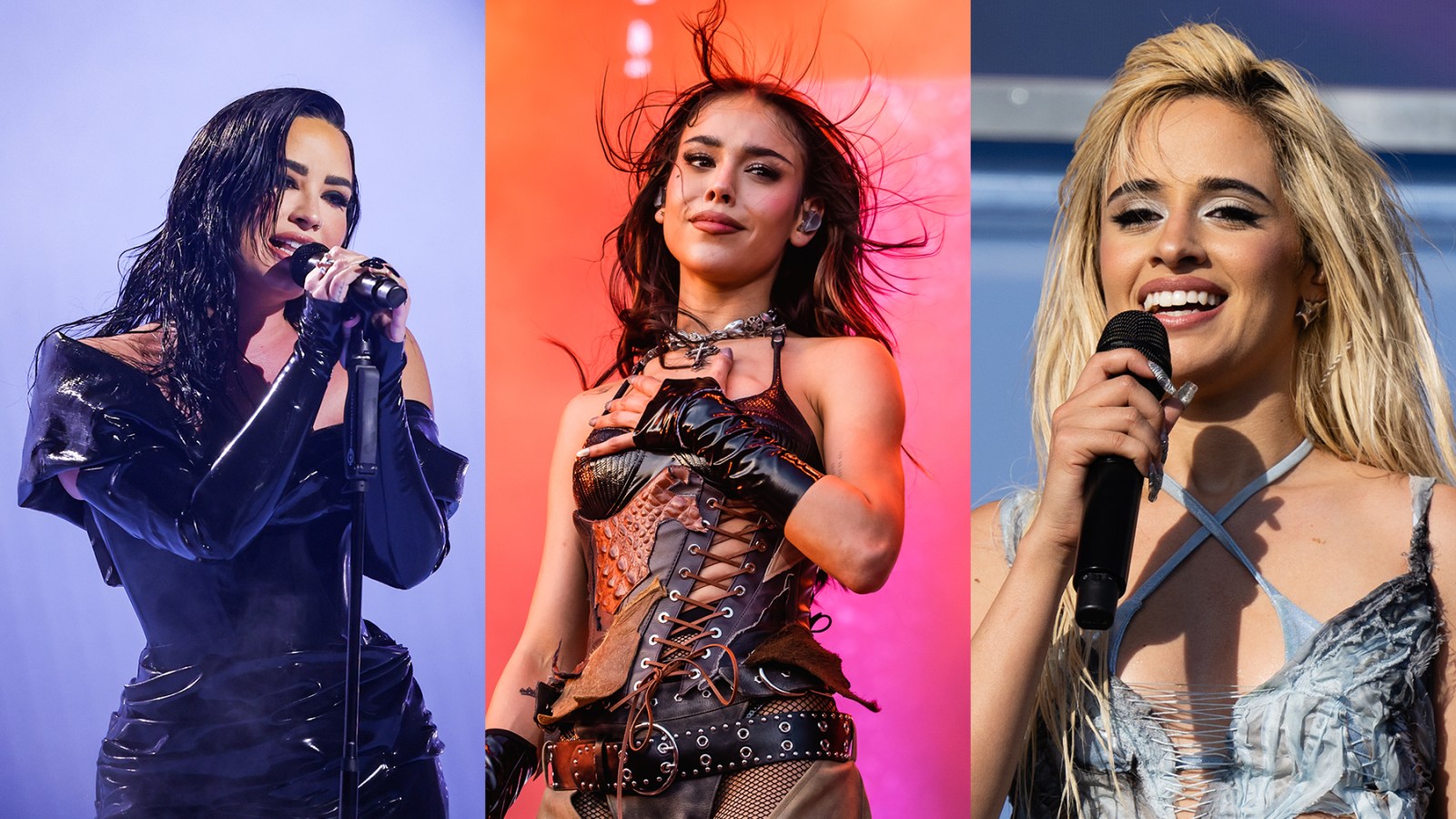
Last August, Ximena Sariñana had a crazy idea: What if Mexico City hosted a massive festival à la Corona Capital, but made up of only women-led acts? The Mexican singer hit up her friend and singer Francisca Valenzuela who launched a similar fest Ruidosa Fest in Chile, and asked OCESA promoter Itzel Gonzalez Flores out to dinner to present her with the idea. They immediately got to work.
“After our chat, we knew. ‘It’s time,’” recounts Sariñana. “In two months, Itzel already had a team and we started setting everything up.”
This weekend, the labor of their work together over the last year will come to life with Festival Hera HSBC at Mexico City’s Autodromo Hermanos Rodriguez. The first iteration of this women-led festival will host roughly 50,000 festivalgoers — of all gender identities — for a diverse set of performers completely made up of women-led acts and female-identifying performers. Camila Cabello, Danna Paola, Demi Lovato, Kesha, and Evanescence will be among the headliners, and the festival will also feature growing Latin stars from Maria Becerra and Yahritza y Su Esencia to Villano Antillano and Rubio.
“For me, living in such a vibrant festival city like Mexico City, it was surprising to me there hadn’t been something like this,” says Sariñana. “This is about creating community and leaving a mark on our country.”
Sariñana sees this woman-focused festival, named after the Greek goddess of marriage and family, as a “counter-culture event” in a country where there are many conversations about violence against women and machismo. “It’s important to have moments like these to reverse that,” she explains. “The beautiful thing about this festival is that it’s open to everyone. It’s not exclusively for women.”
Even the festival’s name was intentional. “It’s our way of redefining how we can all live our femininity differently,” she says. “You can live these things in your own way.”
Sariñana tapped Valenzuela to help build the fest after taking inspiration from Ruidosa, which has brought together acts in Santiago, Buenos Aires, and, for the first time this year, New York City, for women-driven performances and conversations. Valenzuela says she started Ruidosa after feeling “super alone” in the industry and wanting to connect and learn from more women artists like herself. Festival Hera feels like a continuation of Ruidosa’s legacy.
“We want to create a web of female artists. This was always my dream and that’s what the first step is with Hera,” Valenzuela says. “To be able to empower and make information more accessible creates a sense of ‘If she can do it, I can do it.’”
“Let’s build with each other,” Sariñana adds.”I can share what I’ve learned and who I am. I can share my opportunities so you can have them too.”
This weekend’s festival will feature three main stages featuring all of the acts on the lineup, along with a fourth, smaller stage, spotlighting local artists in La Marketa, a market comprising Mexican women entrepreneurs and business owners. Along with the shows, the festival will also feature a “conference area” with six panels hosted by thought leaders imparting knowledge on different fields where women are underrepresented.
“Our starting objective is that people just enjoy themselves. We want people who have something in common — a favorite artist, a favorite genre, an ideology — to go and have fun, and listen to music. That’s what we’re always chasing,” says Gonzalez Flores, the fest’s promoter. “But we would love for this to encourage more women to become more interested in music and create a culture around women making music in Mexico.”
Sariñana describes Gonzalez Flores as the “motor” that kept Festival Hera running since its inception. Gonzalez Flores says about 85 percent of the people working on the festival are women, and women lead every team behind the fest, from digital strategy and legal to marketing and production. “That’s a fact,” she says. “Even at the venue, the people who’ll clean and the bartenders will be majority women.”
Gonzalez Flores, who books artists for massive festivals including Vive Latino, P’al Norte, and Pulso GNP, says getting artists to join the lineup for Hera was quite the challenge since there was no precedent for a festival like it. “It’s complicated to talk to teams and say, ‘This is a completely new festival, take a risk with us.’ But we’re so grateful for the people who said, ‘Let’s experiment and see what it’ll be like.’ They really trusted us,” she says.
What stood out to Gonzalez Flores was that even artists who weren’t on tour — including Danna, Lovato, and Evanescence — were willing to join the lineup simply because of what the festival represents.
“They really wanted to do this,” she says of the artists. “Camila had just launched her album and was looking to tour next year and she trusted us. Danna interrupted some things and joined us. All the talent trusted us and are excited to play.”
Now, after this weekend, they’ll continue to help the festival grow, and expand to other parts of Mexico and Latin America. “It’s been beautiful to see how the performers want to see how this can grow and can leave a positive impact on music,” adds Sariñana. “At the end of the day, we all need a guide.”

